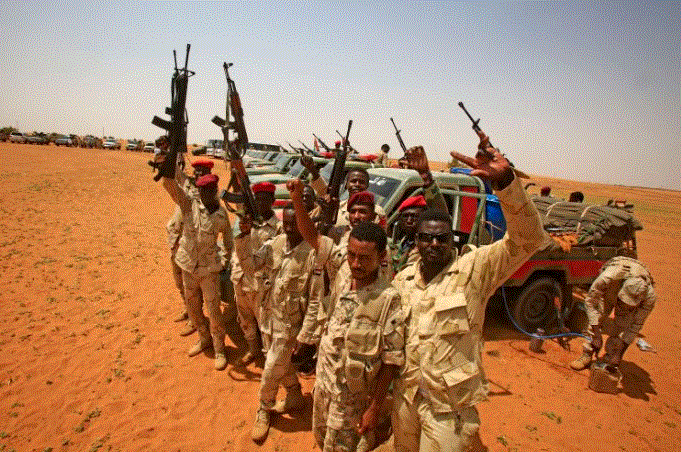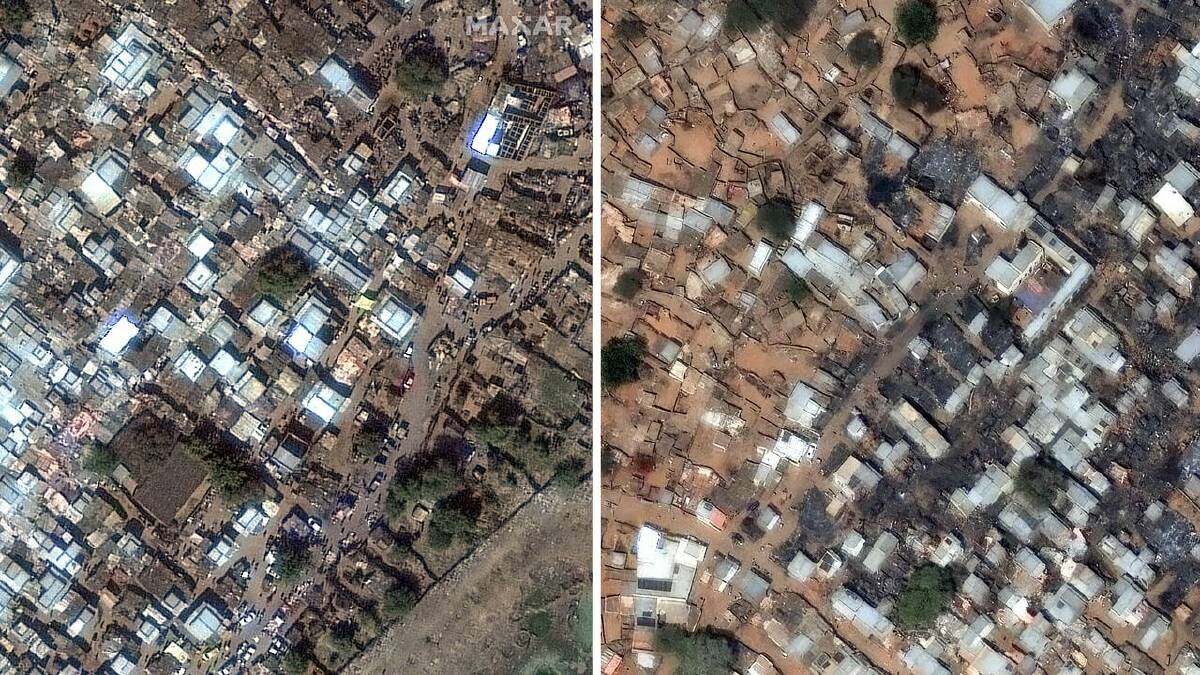Part 1
Introduction: A New Abyss in Sudan’s Civil War
In April 2025, the conflict in Sudan took a devastating turn as the Rapid Support Forces (RSF) launched a brutal assault on Zamzam and Abu Shouk refugee camps near El Fasher, North Darfur. These camps, shelters for some of the most vulnerable populations—women, children, elderly, and displaced civilians fleeing the ongoing war—became the site of an atrocity that not only deepened Sudan’s humanitarian crisis but brazenly violated the core tenets of international humanitarian law.
Part I: Anatomy of an Atrocity
Timeline and Execution
Between April 10 and 12, 2025, RSF troops, reportedly supported by allied militias and tactical drones, launched a coordinated, multi-directional assault on the camps. Witnesses and aid workers describe scenes of horror:
- Shelling and small arms fire struck tents, medical facilities, and food distribution centers.
- Civilian homes were deliberately torched.
- Women were abducted, and some were reportedly sexually assaulted during the chaos.
- The RSF executed suspected opposition sympathizers on site, without trial.
According to Relief International, their entire medical team stationed in Zamzam was killed, and the clinic was razed. Satellite imagery and drone footage from independent observers show systematic targeting of non-military infrastructure.
Part II: Human Cost and Humanitarian Collapse
Casualties and Destruction
- Over 200 civilians were confirmed dead.
- Among the dead were children, elderly, and medical staff.
- At least 2,500 people were wounded, many of whom later died due to lack of treatment.
- Food stores and water tanks were destroyed, exacerbating famine.

Collapse of Services
This attack came as Zamzam was already facing Level 5 famine conditions, with 10% of children severely malnourished. Médecins Sans Frontières had earlier warned that “a child was dying every two hours” even before the attack.
Following the assault:
- Medical operations ceased.
- Humanitarian groups withdrew staff for safety.
- Disease outbreaks began spreading due to lack of sanitation and corpses left unburied.
Part III: A Legal and Moral Indictment
Violations of International Humanitarian Law
The RSF attack represents multiple grave breaches under the Geneva Conventions, constituting war crimes under international law:
- Deliberate Targeting of Civilians
Protected persons under Article 3 of the Fourth Geneva Convention were directly attacked. - Destruction of Civilian Infrastructure
The bombing of clinics, food depots, and homes violates Article 8 of the Rome Statute of the International Criminal Court (ICC). - Indiscriminate Attacks
The RSF used tactics that did not distinguish between military targets and civilians—an explicit war crime. - Sexual Violence as a Weapon of War
Reports of rape and abduction point to violations under the ICC’s statutes, which define sexual violence as both a war crime and a crime against humanity. - Obstruction of Humanitarian Aid
By attacking aid workers and denying humanitarian access, the RSF has violated Customary International Humanitarian Law, Rule 55 and Rule 56.
Part IV: International Response – Deafening Silence
Tepid Condemnations
The United Nations, European Union, and African Union have issued statements of concern, but concrete action remains elusive. The UN Security Council failed to pass a resolution calling for sanctions due to vetoes from key member states backing either the RSF or the SAF.
Call for Justice
International law scholars, including former ICC prosecutor Fatou Bensouda, have stated that the RSF’s actions meet the threshold for prosecution at The Hague. However, with Sudan not being a member of the ICC, a UN Security Council referral is required—unlikely in the current geopolitical gridlock.
Part V: Political Motives and Ethnic Undertones
The RSF’s Strategy in Darfur
El Fasher is one of the last major cities in Darfur not under RSF control. The attack on Zamzam and Abu Shouk appears to be a deliberate campaign of depopulation and terror, aimed at softening resistance and preparing for a final assault on the city. There are credible concerns of ethnic cleansing, particularly targeting non-Arab communities.

Foreign Enablers
Intelligence sources suggest that foreign drones and weapons used in the attack originated from the UAE and Russia, both of which have been accused of backing the RSF either directly or via proxies. The lack of accountability emboldens continued abuses.
Conclusion: A War Crime Unpunished—For Now
The Zamzam massacre is not just a local tragedy; it is a global failure. The world watched as women and children were burned alive in shelters, as food was destroyed in a famine zone, and as international humanitarian norms were trampled. This attack is a test of the world’s commitment to justice and the rules-based international order.
If the perpetrators of Zamzam walk free, it sends a chilling message: that war crimes, if committed far enough from Western borders, will be tolerated. Justice for Zamzam is justice for every victim of unchecked impunity.


